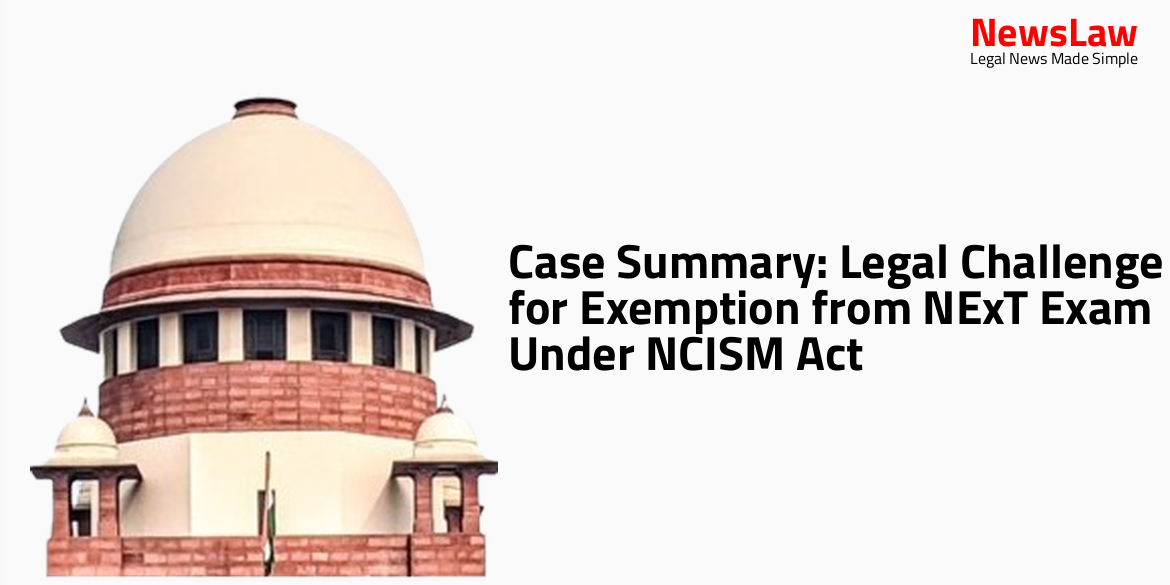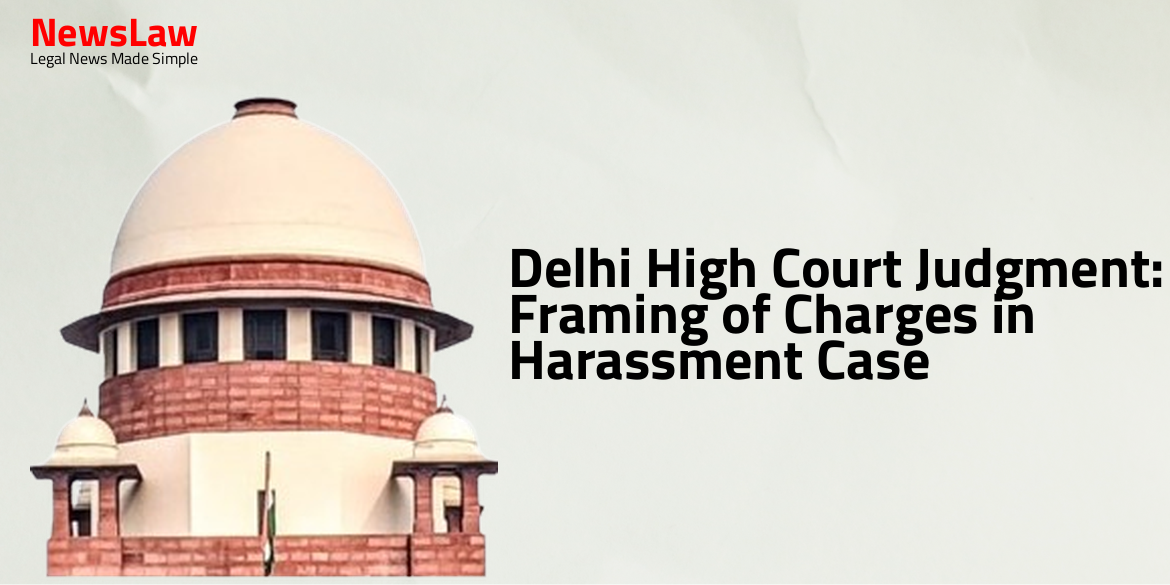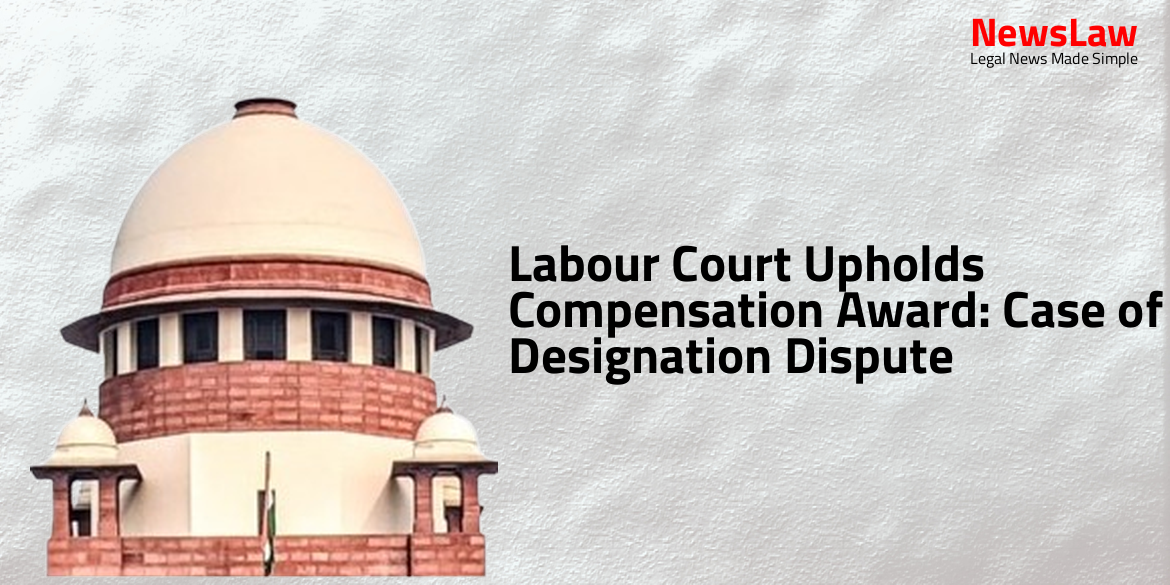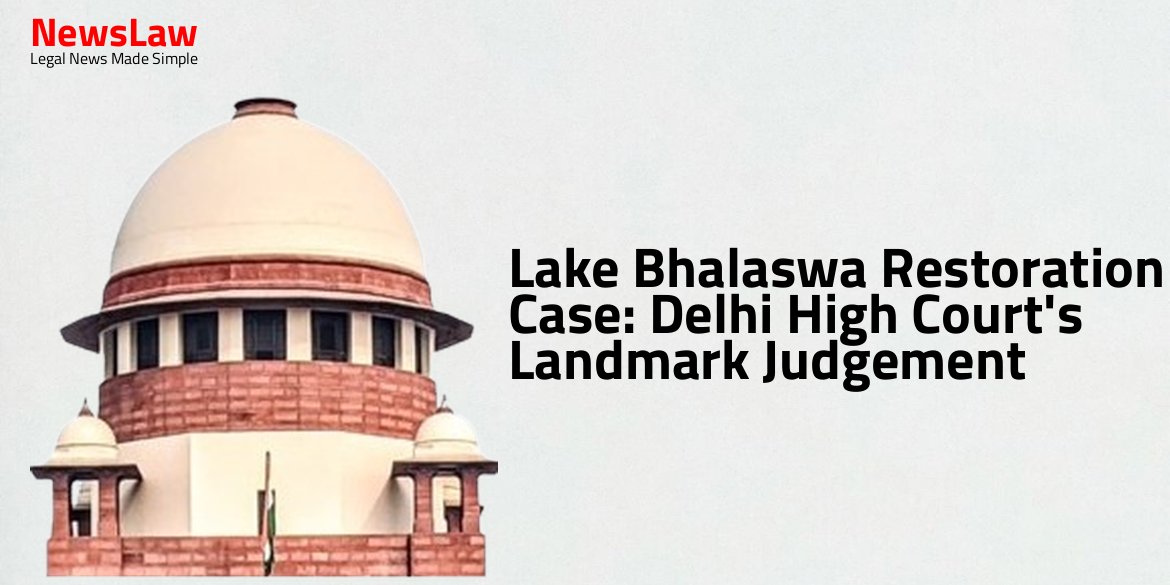Delhi High Court’s recent decision addressed the legal challenge for exemption from the NExT exam under the NCISM Act. The case involved students enrolled in BAMS/BUMS courses before the enforcement of Section 15(1) of the NCISM Act. The appellants sought exemption from the exam, arguing that they should be allowed to practice Ayurvedic or Unani medicine upon obtaining their degrees. The High Court’s judgment sheds light on the complexities of standardized testing in the medical field. Stay updated on the latest legal developments in Indian System Medicine education.
Facts
- The Regulatory Legal Counsel (RLC) argued that the National Exit Test (NExT) is essential to maintain the quality and standard of Indian System Medicine education and practice.
- The RLC highlighted the provisions of the National Commission for Indian System Medicine Act, 2020 (NCISM Act) which empower the implementation of NExT for ensuring competency in graduates.
- It was contended that NExT is a necessary step towards uniform standards in Indian System Medicine and to regulate the entry of practitioners into the healthcare system.
- The RLC emphasized the importance of NExT in evaluating the practical skills and knowledge of graduates before they start practicing independently.
- The RLC provided examples of other professional exams like NEET for allopathic medicine to support the necessity and effectiveness of standardized exit tests.
- The Appellants, currently pursuing BAMS and BUMS courses, seek exemption from Section 15(1) of the NCISM Act which requires passing the National Exit Test (NExT) for licensing.
- They were admitted to these courses before Section 15(1) came into force on 11 June 2021.
- The duration of their courses is 4 ½ years, followed by a 12-month internship.
- The NExT is a final undergraduate exam necessary for licensing in Indian Systems of Medicine.
- The NCISM Act came into force on 11 June 2021, repealing the IMCC Act.
- The Appellants enrolled in BAMS/BUMS programs when they were governed by the IMCC Act.
- Section 15 of the NCISM Act mandates the NExT exam before granting a license to practice as a medical practitioner.
- The Central Government notified the enforcement of Section 15 on 11 June 2021.
- The NCISM Act was enacted on 20 September 2020 and repealed the IMCC Act under Section 58(1).
Issue
- The question before the learned Single Judge was whether a student who had joined the undergraduate course in an Indian System of Medicine before 11 June 2021 would be required to undertake the NExT before receiving a license to practice as a registered medical practitioner.
Arguments
- The Appellants argue that they are victims of inter-institutional discrimination between students admitted under NCISM and NMC for license of practice, despite equal degrees and similar admission tests.
- They highlight the retrospective application of regulations for NCISM students and prospective application for NMC students, showing selective discrimination.
- The NExT exam is seen as a needed reform to ensure competency standards across the country for medical graduates from different institutions.
- The Appellants believe they should automatically practice as Ayurvedic or Unani practitioners upon obtaining their degrees, without needing to clear the NExT as per Section 15(1) of NCISM Act.
- They advocate for exemption from NExT for students enrolled before 11 June 2021 in BAMS/BUMS courses, as per the previous provisions of IMCC Act.
- The absence of an intervening examination requirement in IMCC Act during their enrollment is highlighted by the Appellants.
Analysis
- The NExT exam is a licentiate examination, not a qualifying exam before obtaining the BAMS/BUMS degree.
- Section 15(1) and Regulation 6(2) of the NCISM Regulations, 2023 both envision the NExT exam as a licentiate examination after obtaining the BAMS/BUMS degree.
- The NExT is intended to ensure quality and excellence in individuals practicing Ayurvedic and Unani medicine.
- Legal education primarily falls under universities’ jurisdiction, not direct control of the Bar Council of India.
- The NMC introduced the NExT to bring uniformity in summative evaluation for medical graduates across the country.
- The NMC NExT Regulations 2023 certify the eligibility of medical graduates to register and practice modern medicine in India.
- The Bar Council of India introduced the All India Bar Examination, applicable to all law graduates regardless of their educational institution.
- The introduction of the NExT exam did not violate any legal rights of the appellants.
- The Supreme Court upheld the purpose of introducing licentiate exams for professionals, including lawyers, to ensure the entry of competent individuals into the respective professions.
- The role of universities in imparting legal education does not prohibit the Bar Council of India from conducting a pre-enrolment examination to maintain standards.
- Challenges to the pre-enrolment examination by the appellants were deemed unsustainable in law.
- The Bar Council of India’s aim is to ensure only qualified and competent individuals practice law in the public interest.
- Appellants had no vested right to practice as of 11 June, 2021.
- NExT Exam prescribed by NCISM was within its jurisdiction.
- Statutory regimes governing Appellants, MBBS students, and Diploma in Pharmacy students are different and autonomous.
- Enforcement of regulations by NCISM with immediate effect was valid even though in the field of medicine.
Decision
- Both appeals were found to have no merit and were dismissed.
- The appeals were related to W.P.(C) No 2998/2024.
- The LPA arising from the writ petition was dismissed in the common impugned judgment.
Case Title: PRABHAKAR YADAV & ORS. Vs. UNION OF INDIA & ORS. (2024:DHC:4711-DB)
Case Number: LPA-458/2024



